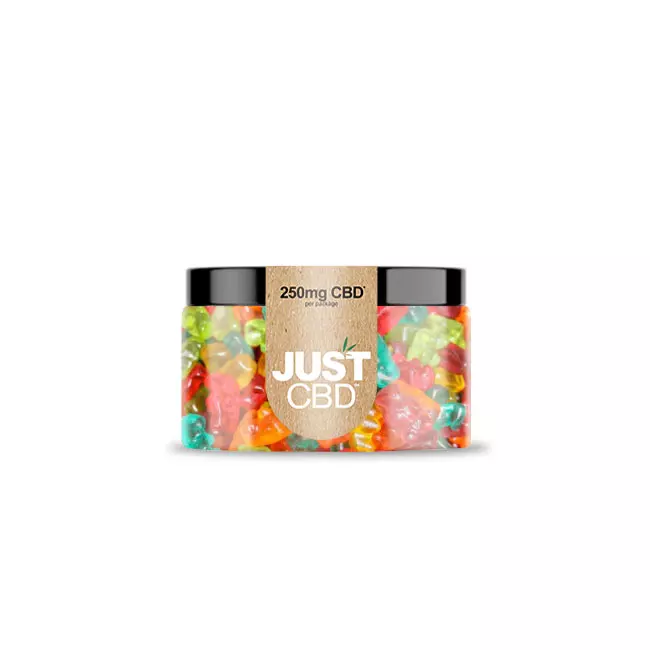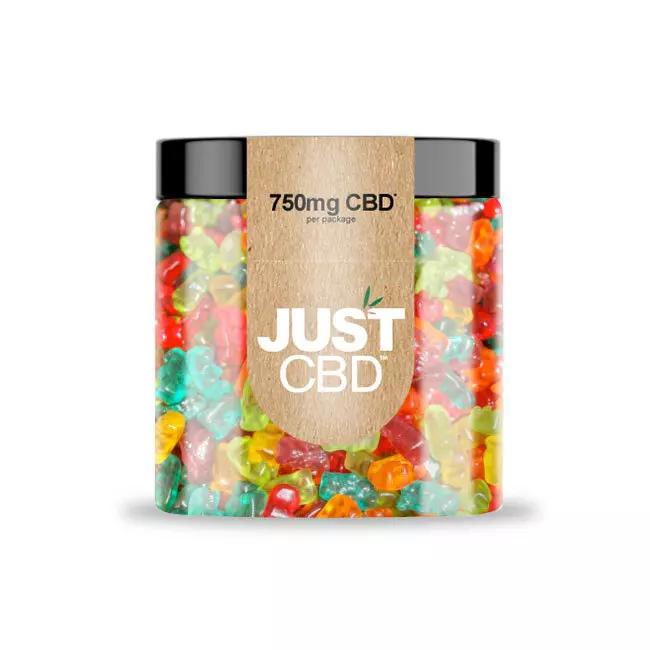Potential Mechanisms of Action
Understanding how CBD gummies might offer relief for depression symptoms requires exploring the potential mechanisms at play. Research suggests that CBD, a non-psychoactive compound found in cannabis, interacts with the body’s endocannabinoid system (ECS), which plays a crucial role in regulating mood, sleep, and pain perception. By influencing ECS activity, CBD could potentially modulate neurotransmitter systems involved in depression, such as serotonin, dopamine, and glutamate.
Endocannabinoid System Interaction
While research on CBD’s effects on depression is ongoing, several potential mechanisms of action are being explored. One key area of interest is the endocannabinoid system (ECS). The ECS plays a crucial role in regulating mood, sleep, appetite, and pain perception. It consists of endocannabinoids (natural compounds produced by the body), cannabinoid receptors (CB1 and CB2), and enzymes responsible for synthesizing and breaking down endocannabinoids. CBD is believed to interact with the ECS indirectly, rather than directly binding to cannabinoid receptors.
CBD may modulate the activity of enzymes involved in endocannabinoid production and breakdown, thereby influencing the levels of endogenous cannabinoids in the body. It could also affect the sensitivity of CB1 and CB2 receptors, leading to changes in downstream signaling pathways that influence mood regulation.
This modulation of the ECS is thought to contribute to CBD’s potential therapeutic effects on depression symptoms. However, more research is needed to fully elucidate the specific mechanisms by which CBD interacts with the ECS and its impact on mood disorders.
Neurotransmitter Modulation
Potential mechanisms underlying CBD’s effects on depression involve modulation of neurotransmitter systems, particularly serotonin, dopamine, and GABA. CBD may interact with these neurotransmitters through various ways, including binding to specific receptors or influencing their production and release.
For instance, CBD has been shown to increase serotonin levels in the brain by inhibiting its reuptake. Serotonin is a key neurotransmitter involved in regulating mood, sleep, and appetite. Additionally, CBD may stimulate dopamine release, contributing to feelings of pleasure and motivation. GABA, an inhibitory neurotransmitter, is also influenced by CBD, potentially reducing anxiety and promoting relaxation.
Scientific Evidence and Studies
Scientific evidence plays a crucial role in understanding the potential benefits and risks of various treatments, including those for mental health conditions like depression. Numerous studies have been conducted to investigate the effects of cannabidiol (CBD), a non-psychoactive compound found in cannabis, on depressive symptoms.
Human Clinical Trials
Scientific evidence regarding the efficacy of CBD gummies for managing depression symptoms is still emerging and largely inconclusive. While some small-scale human clinical trials suggest that CBD may have antidepressant effects, larger, more robust studies are needed to confirm these findings. Research suggests that CBD may interact with serotonin receptors in the brain, potentially influencing mood regulation. However, the specific mechanisms by which CBD might alleviate depression symptoms require further investigation.
It’s important to note that CBD gummies are not a substitute for traditional antidepressant medications or therapy. If you are experiencing symptoms of depression, it is crucial to consult with a healthcare professional for proper diagnosis and treatment.
Animal Studies
Understanding how CBD gummies might offer relief for depression symptoms requires exploring the potential mechanisms at play. Research suggests that CBD, a non-psychoactive compound found in cannabis, interacts with the body’s endocannabinoid system (ECS), which plays a crucial role in regulating mood, sleep, and pain perception. By influencing ECS activity, CBD could potentially modulate neurotransmitter systems involved in depression, such as serotonin, dopamine, and glutamate.
- While human studies on CBD for depression are still limited, animal studies have shown promising results.
- For example, a study published in the journal *Neurotherapeutics* found that CBD significantly reduced anxiety-like behavior in mice.
- Another study, published in *Pharmacology & Behavioral Neuroscience*, showed that CBD administration lessened depressive-like symptoms in rats.
Dosage and Administration
The way CBD gummies are taken – dosage and administration – is crucial for their effectiveness. Factors such as individual body weight, metabolism, and the severity of depression symptoms can influence the optimal dose. It’s important to start with a low dose and gradually increase it as needed, always under the guidance of a healthcare professional.
Recommended Dosages
Dosage and administration of CBD gummies for depression vary depending on individual needs, severity of symptoms, and product potency. It’s essential to consult with a healthcare professional to determine the appropriate dosage and ensure it doesn’t interact with other medications.
Recommended dosages often range from 10mg to 50mg of CBD per day, taken in divided doses. Some individuals may benefit from higher or lower dosages, depending on their response and tolerance. It’s crucial to start with a low dose and gradually increase it as needed, monitoring for any side effects.
CBD gummies are typically consumed orally and can take 30 minutes to several hours to produce noticeable effects.
Timing of Consumption
Dosage and administration recommendations for CBD gummies can vary depending on individual needs, product potency, and the severity of depression symptoms. It’s important to start with a low dose and gradually increase it as needed, while monitoring for any potential side effects.
The timing of CBD consumption may also influence its effectiveness. Some individuals find that taking CBD gummies in the morning or midday helps with daytime anxiety and focus, while others prefer evening doses to promote relaxation and sleep.

It’s essential to consult with a healthcare professional before incorporating CBD gummies into your treatment plan, especially if you have any pre-existing medical conditions, are taking medications, or are pregnant or breastfeeding. A doctor can help determine the appropriate dosage and timing for your individual circumstances and guide you on safe and effective use.
Safety and Side Effects
Before considering CBD gummies as a potential aid in managing depression symptoms, it’s essential to understand the safety considerations and potential side effects associated with their use. While generally considered safe for most individuals, CBD can interact with certain medications and may cause adverse reactions in some cases.
Potential Risks and Interactions
While research suggests potential benefits, it’s crucial to be aware of the potential risks and interactions associated with CBD gummies. As with any supplement, individual responses can vary, and some individuals may experience side effects such as drowsiness, diarrhea, or changes in appetite.
CBD can interact with certain medications, particularly those metabolized by the liver. It’s essential to consult with a healthcare professional before using CBD gummies if you are taking other medications, including antidepressants, blood thinners, or anticonvulsants.
Additionally, the quality and purity of CBD products can vary widely. It’s important to choose reputable brands that provide third-party lab testing results to ensure the product contains the stated amount of CBD and is free from contaminants.
Pregnant or breastfeeding women should exercise caution and consult with a healthcare professional before using CBD gummies, as the safety profile for these populations is not well established.
Quality and Sourcing Considerations
Safety and side effects are important considerations when using CBD gummies for depression. While generally well-tolerated, CBD can cause mild side effects in some individuals, including changes in appetite, diarrhea, and drowsiness. It’s essential to choose products from reputable manufacturers who provide third-party lab testing to ensure quality and purity.
The sourcing of ingredients is another crucial aspect. Look for CBD gummies made with organic hemp that has been grown without the use of pesticides or herbicides. The extraction process used to obtain CBD should also be environmentally friendly and safe for human consumption.
Considerations and Future Research

Further research is necessary to fully understand the effectiveness and optimal use of CBD gummies for managing depression symptoms. Large-scale, well-controlled clinical trials are needed to confirm the preliminary findings from smaller studies and to determine the long-term effects and potential risks associated with CBD use.
Additionally, investigations into the influence of various factors such as dosage, formulation, and individual variability on CBD’s therapeutic outcomes are crucial.
Individual Variability in Response
Future research should focus on larger, well-controlled clinical trials with diverse populations to confirm the effectiveness of CBD gummies for managing depression symptoms. These studies should explore optimal dosages, long-term effects, and potential interactions with other medications.
Investigating individual variability in response to CBD is crucial. Factors such as genetics, metabolism, and existing mental health conditions may influence how individuals respond to CBD treatment. Personalized approaches that consider these factors could lead to more effective therapeutic interventions.
Long-Term Effects
Future research should focus on conducting larger, randomized controlled trials with longer durations to confirm the efficacy and optimal dosages of CBD gummies for managing depression symptoms.
It is crucial to investigate the long-term effects of CBD use, including potential risks and benefits.
Additionally, researchers should explore the potential interactions between CBD and other medications commonly used to treat depression to ensure safe and effective treatment combinations.
Understanding individual variability in response to CBD is another important area for future research. Genetic factors, metabolism, and lifestyle choices can all influence how individuals metabolize and respond to CBD, necessitating personalized approaches to treatment.
Further Research Directions
Future research should focus on conducting large-scale, randomized controlled trials to definitively establish the efficacy and optimal dosages of CBD gummies for managing depression symptoms.
Longitudinal studies are needed to assess the long-term effects and potential risks associated with CBD use for depression.
Investigating the specific mechanisms by which CBD interacts with neurotransmitter systems involved in mood regulation, such as serotonin, dopamine, and GABA, will provide a deeper understanding of its therapeutic potential.
Research should also explore the impact of factors like individual genetics, lifestyle, and co-occurring conditions on the effectiveness of CBD gummies for depression.
Further research is needed to determine optimal dosage guidelines and administration strategies for different populations and symptom severities.
Buy premium CBD Gummies for focus and relaxation
Try cbd gummies at JustCBD
Classy Pleasure
Dime Nails LA
- Where To Get Lip Filler Near Me - June 2, 2025
- Why Gaslighting Hurts: Understanding The Emotional Toll On Victims - June 2, 2025
- The Mystery Of Orbiting In Social Media Relationships - June 1, 2025
